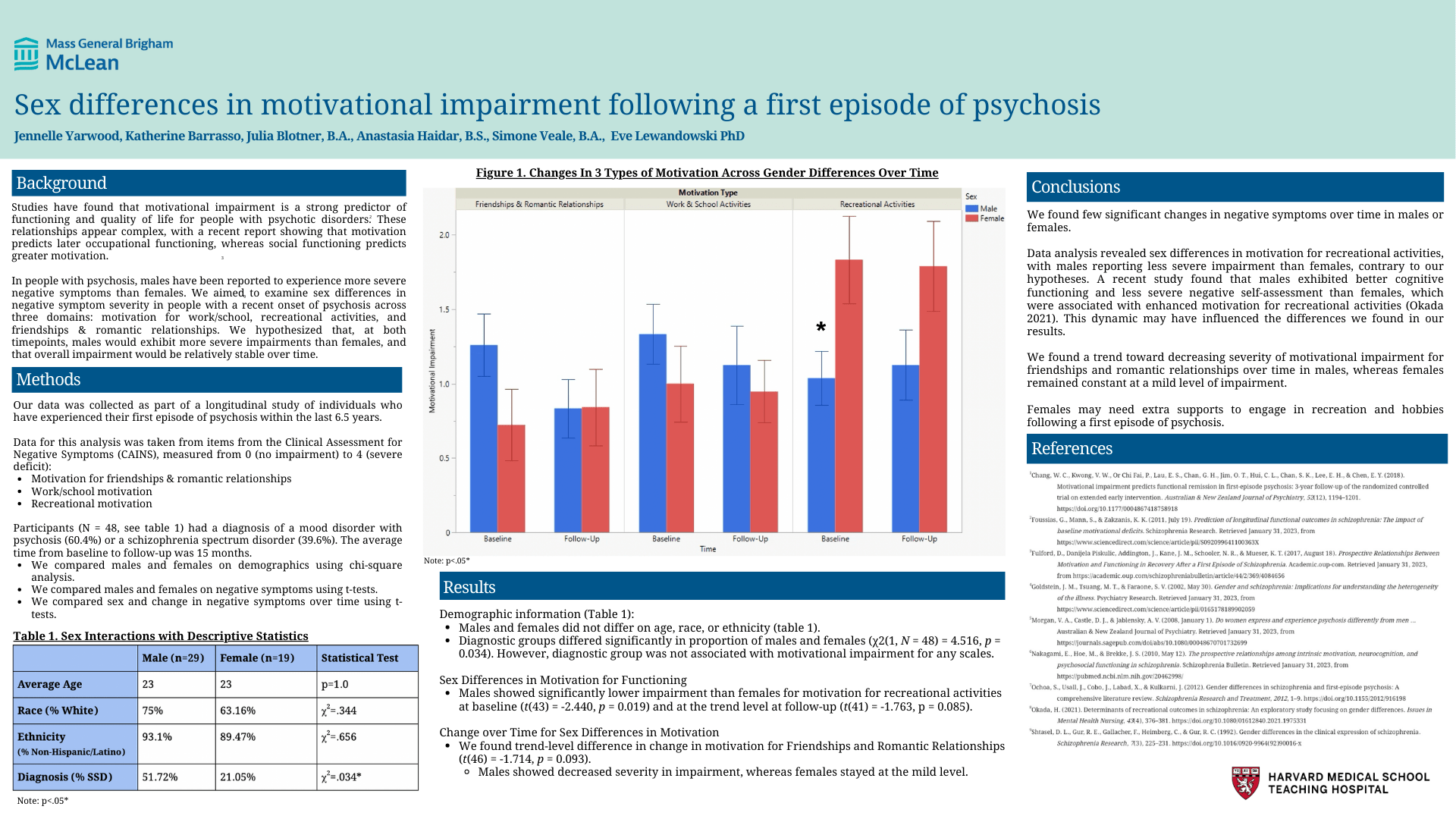Scientific Abstract
Background: Negative symptoms, including motivational impairments, are often predictors of functioning in people with psychotic disorders. Studies have shown sex differences in negative symptoms with males exhibiting more severe negative symptoms than females. We assessed motivational impairment in several domains in people with a recent onset of psychosis and hypothesized that, at both timepoints, males would exhibit greater impairment than females, and that overall impairment would be relatively stable over time.
Methods: Participants (N = 48) with psychosis within 6.5 years of onset were assessed using the Clinical Assessment Interview for Negative Symptoms (CAINS). We analyzed motivation for friendships and romantic relationships, work/school, and recreational activities at both baseline and follow-up timepoints (x̄= 15 months), and change over time.
Results: Motivational impairment was in the mild range for most domains, except for recreational activities, in which females reported moderate symptom levels at both timepoints. Contrary to our hypotheses, males reported less impairment in motivation for recreational activities than females at baseline (t(43) = -2.44, p = 0.019), and was significant at the trend level at follow-up (t(41) = -1.763, p = 0.085). There was no significant difference between baseline and follow-up means across conditions. For change in motivation, males showed greater change (decreased impairment) in motivation for friendships and romantic relationships than females at the trend level (t(46)=-1.714; p = 0.093) from baseline to follow-up.
Conclusion: Negative symptoms were in the mild range in males and females in all domains except recreational activities for females. This suggests that females may need additional clinical or social support around engaging in hobbies and leisure. As hypothesized, we found no change in motivational impairments over the follow-up period, suggesting that – consistent with the literature – these symptoms are relatively stable even in recent onset participants. This study is ongoing, and we will continue to examine sex differences in negative and other clinical symptoms over time in our larger sample.
Search posters

